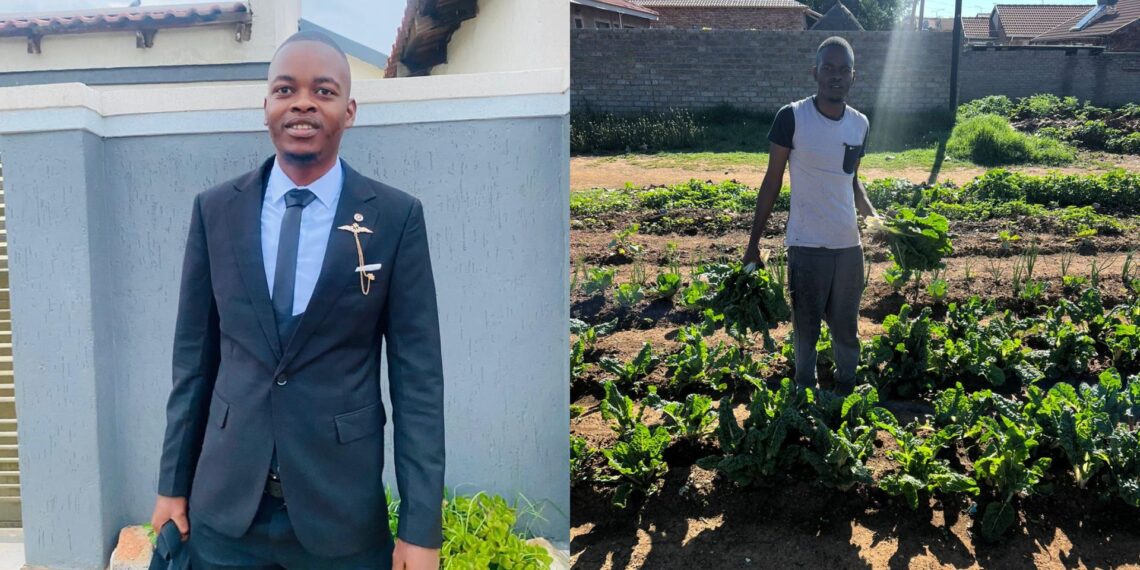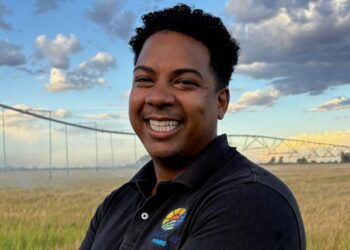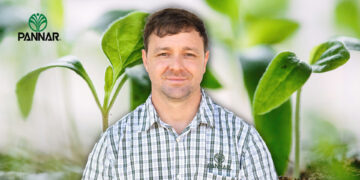Each day, more people in Mzansi take bold steps toward their goals. Among them is Nyiko Nkhwashu, founder and treasurer of Siyakhula Crop Farm in Ennerdale in the south of Johannesburg.
New to farming, Nyiko isn’t just growing crops; he’s building his future from the ground up, proving that real change starts with action.
Siyakhula Crop Farm operates on a volunteer basis, with nine members from the Ennerdale community. The group grows a variety of crops, including spinach, cabbage, carrots, onions, tomatoes, potatoes, beetroot, okra, pumpkin, and chilli.
“Our goal is simple yet powerful: to grow food, create jobs, and bring positive change to our community,” says Nkhwashu.
He gives credit and support to their mentor, Alfred Neto, for believing in their vision from the start. “He didn’t just guide us; he made sure we had everything we needed to start, from tools to seeds,” says Nkhwashu. With his help, they turned a neglected piece of land into a productive farm that now serves the community.
Facing obstacles together
Recently, Siyakhula registered as a co-operative in hopes of securing funding to expand its operations. One of their main aims is to make fresh produce easily accessible to residents, so people don’t have to travel far to buy vegetables.
Although still new to farming and learning as they go, the collective has found a small but steady market for their vegetables in Ennerdale and the surrounding areas. However, Nkhwashu says limited access to land remains a challenge, and the unfenced plot makes them vulnerable to theft.
“Food theft is one of our biggest problems. When spinach is stolen, it affects how the plant grows,” he explains. “And if it’s pulled out by the roots, we lose the crop completely.”
Nyiko Nkhwashu
Another major challenge is water. The farm doesn’t have its own water source, so members collect water from nearby homes, something that limits their productivity and growth.
Despite these obstacles, the Siyakhula team works together and shares all responsibilities, from planting and watering to weeding, harvesting, packaging, storage, and market preparation.

Nkhwashu says they rotate tasks to maintain fairness, encourage teamwork, and ensure that all areas of the farm are properly managed. Each member also keeps a record of their hours and completed tasks to promote accountability and transparency within the group.
Related stories
- Former Soweto DJ finds rhythm in sustainable farming
- Taleni Farmers Co-op grows hope in rural Eastern Cape
- Intambanana Co-op: Farming together, growing together
- Food For Mzansi serves as ideal launching pad for farmers
More than just making a living
Before becoming a farmer, Nkhwashu worked as a financial advisor in the city. He says he always knew that the corporate space was not where he wanted to be, because it limited his growth.
Today, his financial skills help him in his farming business, especially with budgeting and record-keeping.
Even before he started farming, a friend told him about the OSizweni Community Centre, a place that helps the community develop different skills. He attended for a few weeks and learned how to grow fresh produce.
“We were taught every little thing about agriculture and they even gave us seeds to plant at home, along with information from the department on how to build a living through it,” he explains.
He believes that everyone is born for a purpose. “I want to build a legacy for the generation coming after me.”
His farming business officially started in June 2025. In the first five months, they have already made sales, and they are excited to learn and grow even more.

Beyond the harvest
Nkhwashu says they have a clear vision for their business. The bigger goal is to grow Siyakhula Crop Farm into a sustainable and impactful agricultural co-op that not only produces high-quality crops but also brings value to the community.
“While we are still at the beginning of our journey, we want to expand our operations, improve efficiency, and increase our positive impact,” he says.
They are hoping for funding to help grow the co-op, purchase essential equipment and tools, and provide education on modern agricultural practices. They also want to create meaningful employment opportunities for community members.
Even though they are farming on communal land, everything they have achieved so far was started from their own pockets.
“Our vision is to combine agricultural success with social development, so that our co-op becomes a model of growth, learning, and shared opportunity.”
READ NEXT: Farming friends turn lockdown losses into a permaculture haven
















